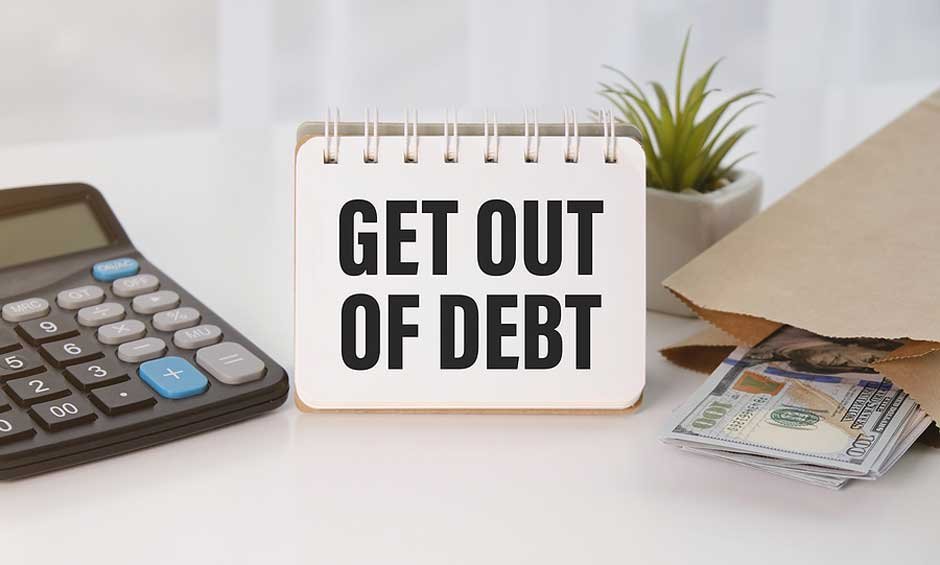Managing debt can be a challenging and overwhelming experience, but seeking the right assistance can make a significant difference. One option to consider is a debt reduction service to help you negotiate and settle your debts for less than what you owe.
Understanding how these services work and when they’re most effective can lead you to a better decision. It will also help you understand the best option when pursuing a debt payment solution. In this article, we will discuss how debt reduction services work, their benefits, drawbacks, and alternatives to ensure you make an informed decision about your financial future.
How Debt Reduction Services Operate
Debt reduction services, also known as debt settlement or debt negotiation companies, help you manage your unsecured debts by negotiating with your creditors on your behalf. They aim to reach agreements with creditors to settle your outstanding balances for a reduced amount, allowing you to pay off your debt more quickly and affordably. Here’s a step-by-step overview of how these services work:
- Assessment: The debt reduction service assesses your financial situation and evaluates whether their services are a suitable option for your specific circumstances.
- Enrollment: If you qualify, you’ll be enrolled in their program and start making monthly payments into a dedicated account managed by the service provider.
- Negotiation: Once you’ve accumulated enough funds, the service provider will begin negotiating with your creditors to reach a settlement agreement. This process may take several months or even years, depending on your debt amount and the willingness of your creditors to negotiate.
- Settlement: Once an agreement has been reached, the funds from your dedicated account will be used to pay off the settled amount. This process is repeated until all your debts have been settled.
Benefits of Debt Reduction Services
Debt reduction services offer several advantages that may help you manage and eventually eliminate your debt:
- Reduced Debt Amount: The main benefit is the potential to settle your debt for less than the original amount owed, saving you money in the long run.
- Single Monthly Payment: Consolidating your debts into a single payment can simplify your financial management and help you stay on track.
- Expert Negotiation: Debt reduction services have experience negotiating with creditors, which can increase the likelihood of reaching favorable settlement agreements.
- Stress Relief: Having a professional advocate on your side can alleviate some of the stress and anxiety associated with debt management.
Drawbacks of Debt Reduction Services
While debt reduction services can be beneficial, it’s essential to be aware of the potential drawbacks:
- Fees: Debt reduction services charge fees, which can offset some of the savings from reduced debt amounts. Make sure to understand the fee structure before committing to a service.
- Credit Impact: Debt settlement can have a negative impact on your credit report, as settled debts are often reported as “settled for less than the full amount.” This can affect your ability to obtain credit in the future.
- No Guarantees: There’s no guarantee that a debt reduction service will be successful in negotiating with your creditors or that they’ll accept the proposed settlement offers.
- Tax Implications: Forgiven debt may be considered taxable income, so consult a tax professional to understand the potential tax consequences of debt settlement.
Alternatives to Debt Reduction Services
If you’re unsure whether a debt reduction service is the right option for you, consider these alternatives:
- Debt Management Plan: A credit counseling agency can help you create a structured repayment plan with lower interest rates and waived fees, without settling your debt for less than you owe.
- Debt Consolidation Loan: Consolidating your debts into a single loan with a lower interest rate can make repayment more manageable, but you’ll still be responsible for the full debt amount .
- Balance Transfer Credit Card: Transferring your high-interest credit card balances to a new card with a lower or zero introductory interest rate can help you save money on interest charges.
- Bankruptcy: While it should be considered as a last resort, bankruptcy may be an option for individuals who are unable to manage their debt payments and need a fresh financial start.
In Conclusion
Debt reduction services can be a useful tool for individuals struggling with unmanageable debt. However, it’s essential to weigh the benefits and drawbacks carefully before making a decision. Debt reduction services can help reduce your debt amount, simplify your payments, and relieve stress, but they also come with fees, credit impact, no guarantees, and potential tax implications.
Before choosing a debt reduction service, consider alternative options like a debt management plan, debt consolidation loan, balance transfer credit card, or even bankruptcy, if necessary. It’s crucial to consult with a reputable service provider, financial advisor, or credit counselor to determine the best course of action for your specific financial situation.

